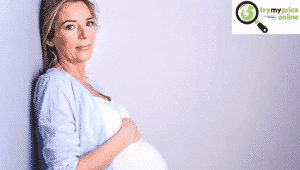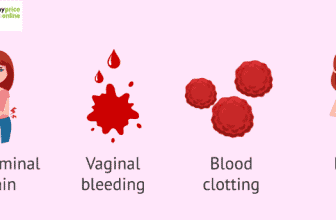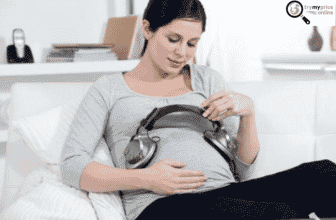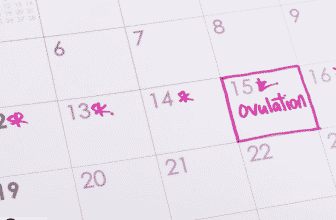
Geriatric pregnancy, A pregnancy in which the mother is over 35 is known as advanced maternal age. Miscarriage, congenital abnormalities, and high blood pressure are more common among pregnant women over the age of 35. Certain congenital abnormalities can be detected with screening testing. And through the following article you can find all details about geriatric pregnancy.
Related: Pregnancy test with salt

faint double line pregnancy test
Geriatric pregnancy
A medical term for women over the age of 35 who are pregnant is advanced maternal age.
When the birth parent is 35 or older, the chances of certain difficulties increase.
Miscarriage rates are higher, genetic problems are more common, and certain pregnancy issues including high blood pressure or gestational diabetes are more common.
Pregnancy at an advanced mother age is managed similarly to any other pregnancy.
Prenatal testing and increased monitoring may be recommended by your healthcare provider.
When you’re over 35, being aware of your pregnancy symptoms and being well becomes,
Even more vital because your chance of chronic diseases rises.
You can download a guide geriatric pregnancy about from amazon
Related: Protein creatinine ratio pregnancy calculator and its usage
Is it difficult to conceive over 35?
The most significant drop in fertility occurs in your mid-to-late 30s, according to medical experts.
The quantity and quality of eggs in your ovaries diminishes as your fertility declines.
This isn’t to say that getting pregnant beyond 35 is impossible (it is).
It means that after 35, your fertility begins to diminish more quickly, and your chances of difficulties increase dramatically.
Related: Pregnancy announcement creative ideas
Why are difficulties more likely if you’re over 35?
An increase in mother age is linked to a decrease in fertility.
This means that as you get older, the quality of your eggs decreases.
Chromosomal abnormalities are more likely to occur in “older” eggs.
Many of these chromosomal abnormalities are detected during the first trimester by healthcare providers.
Another reason for the increased number of difficulties after the age of 35,
Is that your risks of having most chronic medical disorders rise with age.
When you get older, your body just reacts to certain situations differently.
These chronic illnesses can have an impact on pregnancy and delivery.
Even non-pregnant people are more likely to have high blood hypertension at 35 than they are at 25.
Related: Cvs pregnancy test positive faint line and its meaning

different types of pregnancy test kits
Advantages of having a child after the age of 35
Having children is a personal choice, and many individuals delay having children until later in life.
Having a baby later in life has several advantages, including more life skills and financial stability.
Marriage is taking place later than in prior decades.
The success of assisted reproductive technologies (such as in vitro fertilization, or IVF) is increasing.
As a result, people may postpone establishing or growing their families.
According to studies, the number of people having their first child in their late 30s is increasing each year.
Related: Pregnancy test calculator week by week
Geriatric pregnancy

All in all, about geriatric pregnancy, remember that it’s never too late to start a family. Pregnancy rates among people in their late 30s and early 40s have grown across all races. Having a good pregnancy is determined by your total health, not simply your age.
References:







